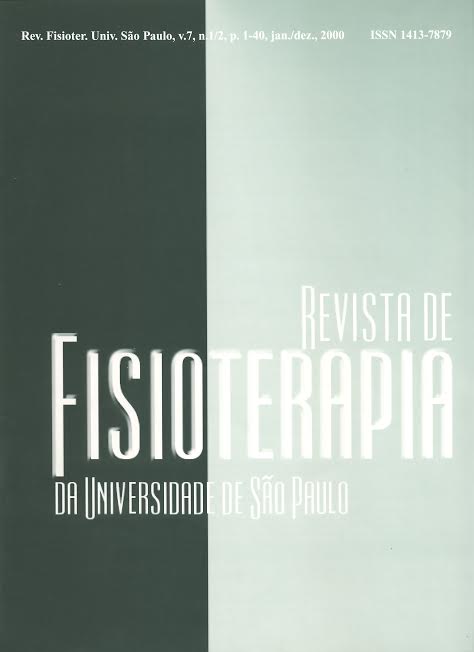Comparison of motor skills in preterm and fullterm children
DOI:
https://doi.org/10.1590/fpusp.v7i1-2.79362Palabras clave:
Infant, Premature, Growth and development, Motor skills disorders, Prevention and control, Intervention sutdies, Comparative sutdyResumen
Studies comparing the development of preterm and fullterm children provide relevant information to follow-up and early intervention programs. The objective of the present study was to compare the neuromotor development of preterm children with norms developed for fullterm children. The sample consisted of 162 children born before term (<37 weeks), in the Hospital das Clínicas da Universidade Federal de Minas Gerais (Belo Horizonte, MG, Brazil). These children were longitudinally assessed in an outpatient follow-up programa, at the university hospital complex. The preterm group was assessed using the Denver Developmental Test at 12, 18 and 24 months corrected age. Data from these assessments were compared to norms described in the test´s manual, for the gross-motor and fine-motor, adaptive areas of function. Statistical analyses were conducted using Chi-square test (1). The results revealed that 16 (55%) out of the original 29 motor items showed significant difference between preterm and fullterm chidren. The observed difference indicated higher frequencies of positive scores (Pass) among the preterm group, especially among the fine-motor items. As the preterm group appoached the age of 24 months corrected age, an increasing number of itens showed significant group differences. The results were discussed considering the impact of extrauterine experience and correction of gestational age in the developmental outcome of preterm children, and suggesting a superestimation of these children´s developmental abilities compared to the term born children, at 24 months corected age.Descargas
Los datos de descarga aún no están disponibles.
Descargas
Número
Sección
Artigos
Cómo citar
Comparison of motor skills in preterm and fullterm children. (2001). Fisioterapia E Pesquisa, 7(1-2), 25-31. https://doi.org/10.1590/fpusp.v7i1-2.79362



